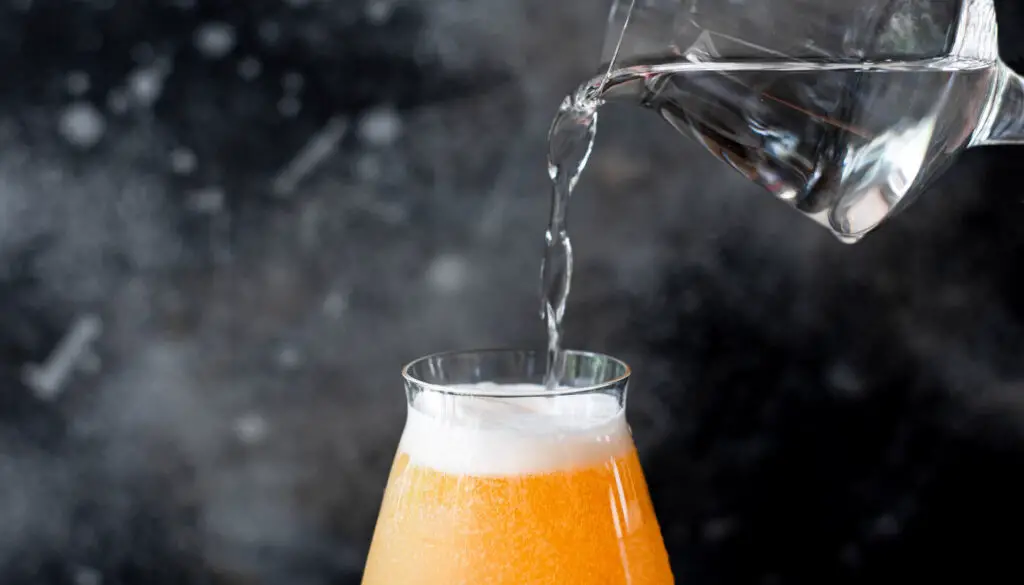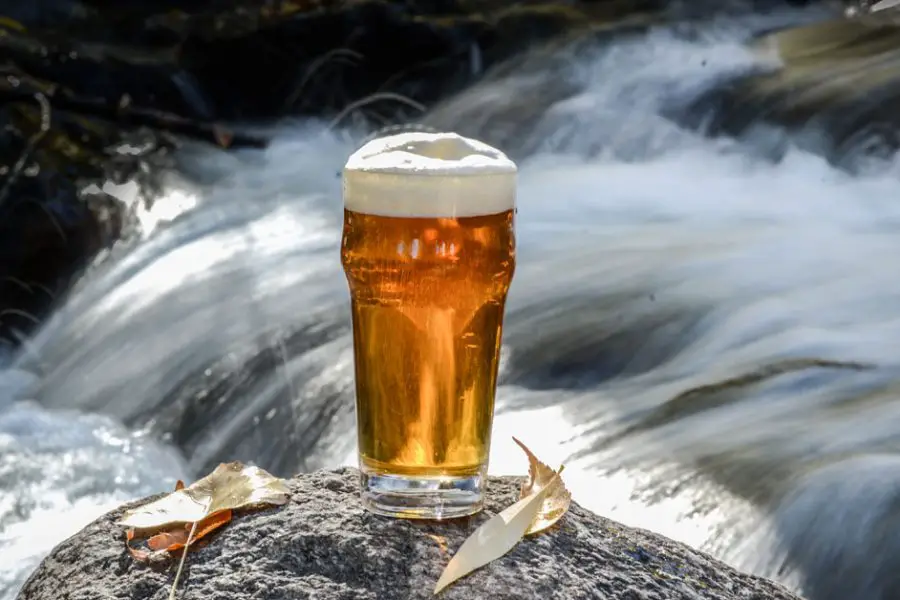Table of Contents
ToggleIs beer basically water?
Beer is like a jellyfish in terms of water content, it is about 95% water. Take a 12-ounce beer as an example. If it has an alcohol content of 5%, the rest, i.e. 11.4 ounces will be water. We can also take other substances into consideration, such as sugar and flavorings, but those make up a tiny portion of the overall liquid so they can be neglected for our purposes.
However, brewers know that it takes a lot more water to produce the final product we know as beer which is used in the boiling of the wort. A wort is a mixture of grain, grain sugars, and water. Why this need for such a large quantity, you may ask. Well, because boiling evaporates water, and considering that the wort needs to be boiled for 60 minutes or so, a significant amount is turned into vapor.
Alcohol as a diuretic
Alcohol has a diuretic effect on the body, meaning that it increases the excretion of urine. It accomplishes this by inhibiting the release of Vasopressin or Antidiuretic Hormone (ADH) by the posterior pituitary gland into the bloodstream.
The primary function of ADH is to concentrate urine by inducing the formation of water channels called aquaporins in the tubules of the kidney so that the water is reabsorbed by the body.
However, with the inhibition of ADH, these water channels are absent, and hence water is lost. And while the rising electrolyte concentration in the blood due to water loss should indicate to the body that it’s time to secrete ADH to balance the fluid, this is disrupted with the increased alcohol concentration.
Is beer as hydrating as water?
Leonardo da Vinci once said that “water is the driving force of all nature.” And he was right. There is no better way to quench your thirst on a hot summer day than to drink a glass of water. And so water definitely tops the list when it comes to drinks that are hydrating. While beer is mostly water, the alcohol leaves a dehydrating effect on the body. The amount of dehydration will depend on the percentage of alcohol found in the beer. The lower the alcohol content, the lesser will be its diuretic effect on the body, which will lead to less urine production.
If beer is mostly water, why does it dehydrate you?

Beer, compared to wine and liquor, is the least dehydrating since it has the least amount of alcohol in one serving. A 12-ounce beer will contain an alcohol content of anywhere between 3% to 7%. A 5-ounce wine glass will contain 14% alcohol. Lastly, a 1.5-ounce liquor shot could have as much as 70% alcohol. But, it nonetheless contains alcohol. One trick to staying hydrated with beer is to drink less of it. For instance, having one beer bottle over dinner will not dehydrate you. But if you overdo with the beer bottles, i.e. have four in a row, then the diuretic effect of beer will take quite an effect, and you will end up urinating more.
Another good suggestion is to drink water alternately with it. So, for every bottle of beer that you finish, you should drink a glass of water. This will dilute the alcohol and give you the extra liquid that your body needs to replace the lost fluid.
Exercise-induced dehydration and rehydration using different fluids
A study conducted measured fluid retention in healthy males post-exercise after drinking one of three different liquids: non-alcoholic beer, high-alcohol beer, and water. Urine production was measured at 30 minutes and 60 minutes. Drinking high-alcohol beer resulted in higher urine production and lower fluid retention compared to the two other drinks.
What would happen if you were to only drink beer and consume nothing else?
While beer provides sufficient calories, it lacks the essential nutrients that a human body needs to survive. Two of the prominent deficiencies that could arise are protein and vitamin deficiencies that could result in conditions like Beriberi, Folate deficiency, Scury, Vitamin A deficiency, muscle wasting, degradation of smooth muscle, and even protein starvation. In addition, it can deplete your water stores. One should always supplement beer intake with other food and drinks to make sure that the body receives the essential fuel and fluids to survive.
Why people depended on beer to stay hydrated
It is a common misconception that people did not have access to clean drinking water in medieval and ancient times, thus they relied on beer to stay hydrated. Our ancient ancestors knew the importance of water, both as a source of hydration as well as sanitation. And they knew how to get access to clean water as we have plenty of evidence to prove it. We see most towns, villages, city-states, and civilizations popping up next to or near rivers, streams, and springs, and people also dug wells. Civilizations like ancient Egypt, Mesopotamia, and the Indus Valley all constructed their towns and cities near rivers like the Nile, Tigris, Euphrates, and Indus
Lupus Servatus said in the 9th century, “Let us make use of a healthy, natural drink which will sometimes be of benefit to both body and soul – if it is drawn not from a muddy cistern but from a clear well or the current of a transparent brook.”
Beer was enjoyed, sure, but it wasn’t a replacement for water. It was known to be more nutritious since it was made from cereal crops like wheat or barley and yeast and sweetened and seasoned with dates, fruits, honey, and herbs, thus providing energy to farmers and workers.
It’s almost counterintuitive that beer being mostly water, fails to hydrate us almost as well as water. But it’s good to be aware of its dehydrating effects, especially with large quantities of beer, which will help us be more careful the next time we are out for a drink or two with friends and family.

I am a passionate beer connoisseur with a deep appreciation for the art and science of brewing. With years of experience tasting and evaluating various beers, I love to share my opinions and insights with others and I am always eager to engage in lively discussions about my favorite beverage.
















